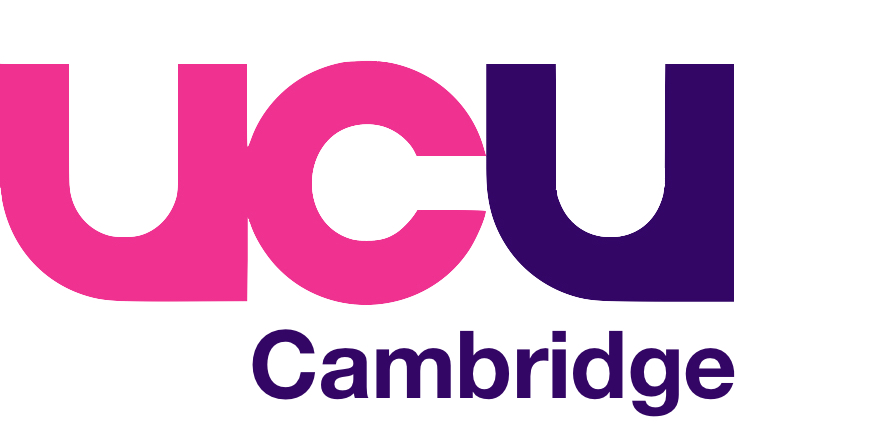BACKGROUND
‘Casualisation’ is the process through which employers whittle away the protections, rights, and security of their employees. It is a very widespread phenomenon and comes in many forms such as hourly-paid work, zero-hours contracts, temporary workers contracts – always moving workers from secure to insecure contracts.
The impact of casualisation on UK academia (including at Cambridge University) has been severe. It is indissociable from the wider marketisation of higher education in the UK, where universities are more like businesses, competing on the world market for the most lucrative students.
Tens of thousands of academic staff (and many more women than men) are on casual or insecure contracts at higher education institutions around the UK (cf. Higher Education Statistics Agency data ).
The situation in Cambridge is consistent with the wider situation. Cambridge is at the forefront of the developing phenomenon of the ‘precarious postdoc’, with the number of postdocs at Cambridge doubling over the past 15 years (cf. data from Postdocs of Cambridge Society).
Alongside the approximately 4,000 postdocs on short-term or fixed-term contracts, Cambridge University has a huge hourly-paid workforce. The standard rate of hourly-pay has not kept up with inflation and does not include preparation time.
The University also runs a Temporary Employment Service, an internal agency designed to provide temporary workers to the University who have less rights and benefits than University employees. Staff on Temporary Employment Service contracts are not considered employees by the University, and do not have government-mandated agency worker rights. They are not entitled to maternity leave, do not have a notice period if contracts are terminated early and are not entitled to occupational sick pay. There are hundreds of academics and academic-related staff in Cambridge on Temporary Employment Service contracts (cf. Cambridge UCU report on Casualisation).
THE CAMPAIGN
In October 2018, the Cambridge University UCU passed a motion at its General Meeting, laying the foundation for its anti-casualisation campaign, along with its charter, which calls for action on casualisation.
The next step in the Union’s anti-casualisation campaign was to submit a claim (a formal demand) to the University in December 2018. While recognising that, because of the college system in Cambridge, the University cannot eradicate casualisation overnight, the Union called on the University to take substantive action where it can to promote good practice. The main demands of the claim can be summarised as follows (the claim can be found in full here).
THE CLAIM
- For the University to convene a working group, which would include UCU representatives and senior University managers. The group would submit an initial report to the University by March 2019 and a full report with recommendations by June 2019.
- For the rates of pay for examination and assessment to be adjusted to today’s prices and pegged to the national pay scale: pay for examination (calculated as piece work) has been frozen since 2008, despite price increases of between 21.4% and 29.4%.
- For preparation time to be recognised and included in the pay at an agreed University-wide rate.
- For hourly-paid teaching to be covered by a contract.
- For the University to negotiate with the UCU and then communicate as a University-wide standard a framework for the fair and transparent allocation of teaching.
- For the University to negotiate with UCU and then communicate as a University-wide standard a base rate for hourly-paid college supervision (including preparation time), and contracts for college teaching.
- For the University to negotiate a new policy on the use of Temporary Employment Services contracts; to provide guidance stating its preference for employment contracts; to clarify the maximum length for a temporary contract; to review all current temporary contracts; to monitor TES contracts regularly; and to apply the rights outlined by the 2010 Agency Workers Regulations to all staff on Temporary Employment Services contracts.
- For the University to convene a sub-group to negotiate an agreed recommendation on the design of early career posts to ensure that more secure and more balanced academic jobs are implemented within departments.
SINCE THE CLAIM
The Cambridge University UCU published a report, Stamp Out Casualisation in Cambridge, which can be read and downloaded here.
On 10 January, the UCU had an informal meeting with the University’s Human Ressources department, where it was agreed that:
— a sub-group of the Partnership Working Group would meet every month for three months and then every 2-3 weeks for a further three months.
— the sub-group of the Partnership Working Group would have representatives from the UCU, from Unite, from Unison, from the University, and from the Colleges.
The first meeting of this sub-group of the Partnership Working Group will be on 13 March 2019.
From 22 January to 1 February, Sandra Cortijo, the Cambridge University UCU anti-casualisation officer, gave a series of four presentations around Cambridge to inform members of the University about precarious employment and to mobilise for the anti-casualisation campaign.
Edward Lee-Six
